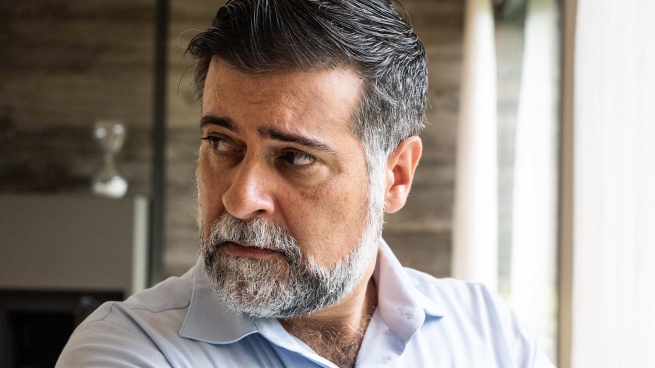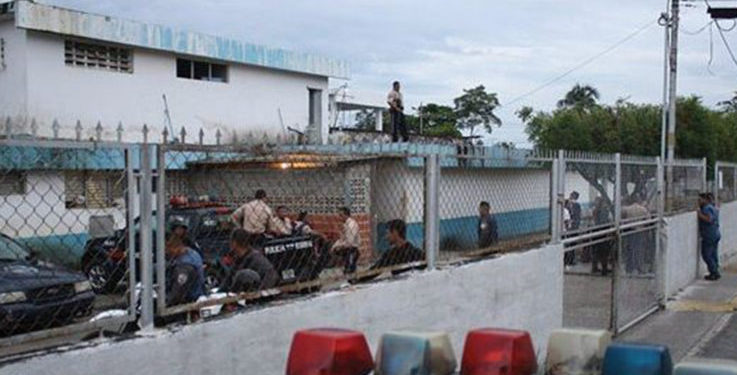Director, actor and playwright Raphael Spregelburdwho is part of the cast of “Last First Day”the police thriller starring Eleanor Wexler which premiered last Thursday on the Flow platform, referred to the discussion on audiovisual financing that arose from the conflict in the Incaa, and considered that “for the first time we find ourselves with a very clear awareness that the identity of fiction is also a way of doing politics”.
“There are those who think that making films is an expense that should only be financed by those who can recover it without taking into account that, in all the countries they admire, culture is financed by the State precisely to achieve that independence in the fictional field” , highlighted the actor in dialogue with Télam.
In this regard, he stressed that the fact that someone says that “a black police officer is American” or refers to “a French-style comedy” is due to the fact that in those countries they achieved that “their own fictional independence is exportable due to the degree of coherence, cohesion and sympathy that product generates”.
“Us -he added- We should fight for that same autonomy because we have what: formidable authors and technicians, it is a moment that should be able to make these fictions gain in local identity to the point of being admired by other cultures”.
Along these lines, the actor celebrated the premiere of the series produced by StoryLab and directed by diego palace which deals with the murder of a teacher and the disappearance of a student after a runaway party on the last first day of the fifth year organized by students of an upper-class private school in a coastal city.
Throughout eight chapters, the series written by Lucas Molteni, Nacho Viale, Sol Levinton and Ricardo Morteowill continue the investigation of agent Duval (Wexler) among the young people to answer the unknowns of the case.
“The black police is a genre that I know little about and this story is very black. It is tremendous, a drama, a chain of unfortunate events that have something of the dynamics of the catastrophe that I like a lot.”Raphael Spregelburd
Within the plot, the actor whose vast career includes the films “The Man Next Door”, “Zama” and “The Flower”; series such as “Días de gallos” and “La casa del mar” and the author of a dozen plays, he plays the father of one of the students who is a very powerful mining businessman from the region who does not conceive that his son “is accused like the rest of the populace of a crime he did not commit.
Télam: What seduced you about the proposal?
Rafael Spregelburd: I had filmed ´Post mortem´ (TecTv) with the guys from StoryLab and the truth is that they wanted a tone for this character that they thought only I could give them, so when faced with that threat I said: “I’m interested” . Sometimes one has doubts, because I have a very rare range in film and television and I never know what my thing is that they come to look for, so I go from being an intellectual to being the father of a soccer player without intermediate stops. So I stay calm when they tell me what they think I can give.
T: Beyond your character, what did you find in the story?
RS: Black crime is a genre that I know little about and this story is very black. It’s tremendous, a drama, a chain of unfortunate events that have something of the dynamics of the catastrophe that I like a lot. Crime is not the crime that one believes, the good guys are not the good guys, the bad guys are not bad guys, and all this generates a very interesting labyrinth. And it is very good that it is serialized because each chapter opens with a new perspective, each new character that appears modifies your plan. What interested me most in this genre was this question.
T: Do you think that the credible one is more complex for an Argentine spectator, where the police force does not have a good image?
RS: That is one of the charms of fiction. For us, fictionalizing the police requires prior decision-making: the other day the police were repressing the absolutely peaceful protesters in front of the Incaa gates, how do you put that into a fiction without us knowing everything we know and everything what we think of the Police? Whenever one enters this genre, there are a lot of images and iconologies that have to be refounded in order to say: “In this fiction, the police are good and they have a heart.” It is part of the challenge. In that sense, it is not naive that the researcher is a woman. But whenever you talk about fiction you have to get the viewer to buy something that doesn’t belong to the world of reality.
T: What do you think is the attraction of framing the series in that high-class youth universe?
RS: Young people are usually represented as consumers of a way of life and it seems to me that one of the signs of the times is to revisit that place. The young man is no longer as a consumer of a model but as someone who is experiencing a series of emotions. Everything that is at stake in an “UPD” is of chilling dimensions, how do the kids risk belonging to a vintage brand? The funny thing is to see how drunk they arrive on the first day of class and that is because it has been generated as a product that they have to consume. In this sense, the series oscillates between presenting it as the theme and, at the same time, condemning it, but it does not take sides and it is fine, it is not moralistic.
T: What challenges does Argentine fiction face in the face of the arrival of the big platforms?
RS: One of the challenges of landing the big platforms is that, on the other hand, they can discover how to support the appearance of very unique phenomena. I am a fan of a Turkish soap opera called “We met in Istanbul” in which Netflix takes the tradition of a completely local phenomenon and puts it in the hands of an exquisite film director and makes a piece of the quality of Bergman. That could only have been produced in Turkey, I mean. It is a moment to be able to establish that sovereignty of what stories we want to tell ourselves and we should tell ourselves.









